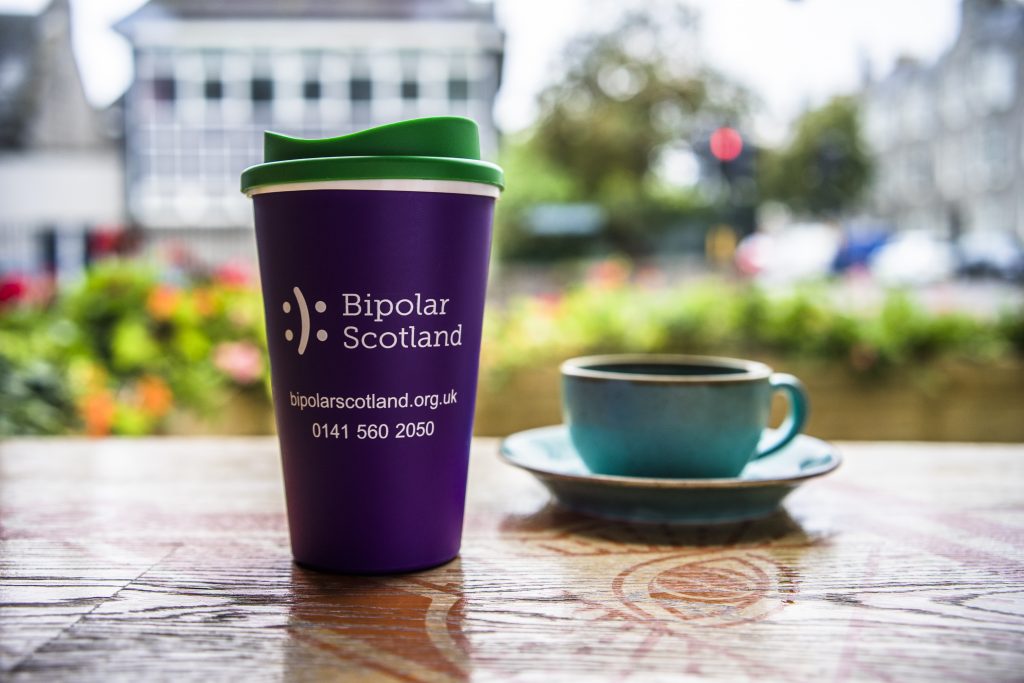Joyce's Story
“My bipolar diagnosis story begins in 1983 when, aged 19, I was first treated for depression. The antidepressants I was prescribed were fairly crude, and I was also given sleeping tablets, both of which made me feel dreadful. I had suffered from depression when I was 15 but received no treatment, this being attributed to teenage moods. At age 19 the feelings were the same and these were very difficult to talk about, partly because it has always been difficult for me to adequately describe how I feel, and also because there was no one really that I could talk to. My GP was at best unhelpful and, at worst, quite damaging. I was told that I was a ‘silly girl’ and a ‘burden to friends’ who made every effort to care for me. I lived away from my parents for work, however, their understanding of depression was scant, and they were embarrassed by the inference that I might be mentally ill.
I was admitted to the local psychiatric hospital and spent a total of 6 months as an inpatient in 1984. Staff implored me to tell them what was ‘wrong’ with me in the hope that by doing so I would become well again. If only it had been that simple. Over the course of the summer of 1984, my mood changed and I became witty, creative and almost completely unable to sleep. I was treated with nothing and nothing helped. As I was apparently well, I was discharged from hospital and returned to work. Again my GP told me to ‘grow up’ and to ‘stop behaving like a teenager’, his belief being that it was well within my gift to change my mood and behave more appropriately. There was never, to my knowledge, any discussion about a diagnosis of manic depression (as it was known then). That said, patients were not involved in any treatment discussions or decisions then.

Four years later (I had lived with very fluctuating moods but had avoided the medical profession altogether in the interim) I once again became profoundly depressed. I was living in a different part of the country and so saw a different consultant psychiatrist than previously. He insisted that I should not be admitted to hospital but could be ‘managed’ in the community, which was what happened. Quite suddenly, after treatment for depression, I had my first episode of mania. It was awful, and much as I hated low mood, I hated this more. I was incredibly creative and if not busy doing something, I became very agitated. Unable to eat or sleep, I was given antipsychotic medication which completely floored me. At no point was I ever given a diagnosis, and one-to-one sessions with the psychiatrist focused on family dynamics and my childhood experiences.
Looking back, it seems incredible that no one was prepared to tell me that I had a serious mood disorder, although I was started on lithium and I deduced that if I was being treated with this, I must be a manic depressive, a label which I have always despised. A label is only useful if it enables one to access appropriate support and treatment, which it rarely does. Instead, it was used in a derogatory way and robbed me of many jobs, which only compounded feelings of hopelessness and uselessness. The stigma attached to the label was considerable and I believe that my family, in particular, were afraid of my apparent unpredictability and so they kept me at arm’s length. I now know that this was borne out of fear and ignorance, rather than any malice.

Eventually in 2005, I was once again profoundly unwell and was admitted to hospital and compulsorily detained (‘sectioned’) twice while I was psychotic. It was only at this point in my diagnosis journey was my ‘condition’ given a name, and one which had less unpleasant connotations than previously.
Nearly 30 years from first presentation, I began to understand my moods and the need for treatment to support me to stay well. I am now cared for by an excellent GP and psychiatrist and I feel as if I am an equal partner in any decisions that need to be made. It took many years to get here and in that intervening time, I’ve seen attitudes change considerably and access to appropriate pharmacological and other therapies become commonplace, and I am glad for those who have come behind me.
I now consider diagnosis to be a journey rather than a destination and to have a bipolar diagnosis is not, I would suggest, a life sentence. Instead, I see it as an unfolding and ever-changing pattern on a continuum of wellbeing.”
